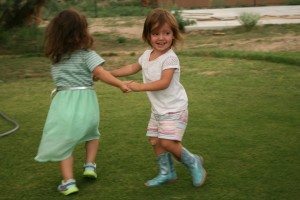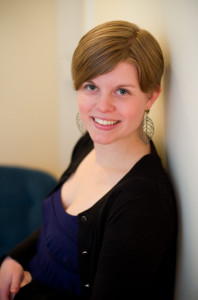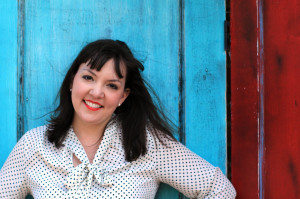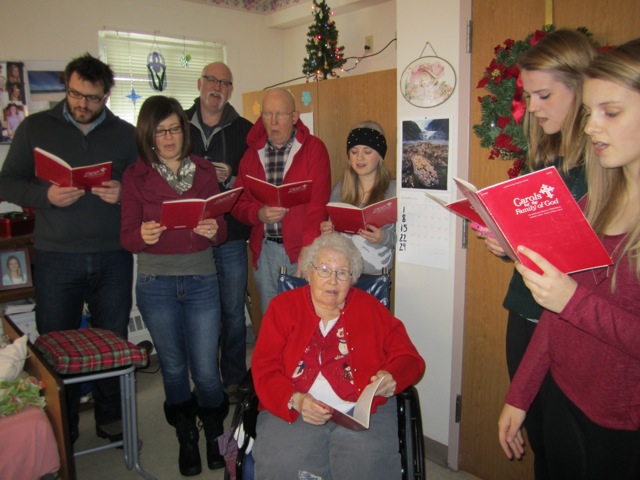Trembling, I stood up in church on a sweaty summer morning. It was prayer time, and the requests and testimonies had been weighty thus far. There were loved ones awaiting parole hearings, babies in the NICU, and the ever-present lure of the streets growing in intensity as the weather warmed. I looked at the worn faces of grandmothers who had been praying for decades, and my own request seemed trivial. They waited, nodding encouragement and softly chorusing “Help her, Lord.”
The Lord helped, and I spoke. “I would like to ask for courage so that I could walk in my neighborhood this summer. I’m not afraid for my safety, not physically, but I just get so tired of being ignored when I say hello to someone. The angry glares are hard for me. And it’s hard, well, to stand out all the time. Please pray that God would help me. Thank you.”
I sat down quickly and wished that I could sink into the pew. Really, did I just ask a congregation of African-Americans to pray for a poor little white girl because she couldn’t handle a little unfriendliness? Did I just complain about standing out to a group of people who had experienced prejudice since their births? Did I really just say all that?
Staring hard at the songbook in front of me, I heard the murmuring begin again. “Oh yes, Lord.” “Thank you, Jesus.” “Help her.” Someone squeezed my shoulder, and my husband covered my hand with his. The murmuring grew, and a middle-aged black man in a crisp white shirt stood on the other side of the church.
“Thank you for sharing,” he said. “And I would like to say something. I also take walks, and I understand what you mean. But here is what the Lord helps me to do: I always say hello and smile. If the person says hello in return, I thank God for that person.
“But,” he looked at me, “if they are rude, I know God has given me a special job. He has given me the job to forgive them and to pray for them. And so that’s what I do. That’s why I haven’t stopped walking. They need my prayers.”
He nodded for emphasis and sat down.
There was a communal breath of silence before everyone began clapping. It was if a door had opened and we all felt the breeze.
“Yes, Lord! Thank you, Lord!” We weren’t murmuring anymore.
***
Earlier that week, my two blonde preschoolers were running down the sidewalk with total abandon, excited to spend their quarters on candy at the corner store. As we passed a block of row houses, there were voices from a porch, and I saw a group of five or six teenage girls staring as we passed. They were whispering, but not very quietly.
“I mean, isn’t this a black street?” one girl said, a little too loudly for her friends’ comfort, and they shushed her.
“Crackers!” another called, and they all broke into nervous laughter, shocked at her audacity. I was walking as fast as possible, face burning, but still I heard one more thing.
“Why are they even here?”
This is a good question. As my children were contemplating their candy purchases, I thought about my city. Pittsburgh has the dubious distinction of being one of the most segregated cities in America, and because we also have an unusually low Latino population, the city is largely divided into “black neighborhoods” and “white neighborhoods.” The convenience store where I stood was smack dab in the middle of a black neighborhood, and the teenager on the porch was right—I did not belong there.
My neighborhood came to me by way of marriage. My husband, a Scandinavian from Los Angeles, bought his house two years before we met in the fall of 2004, and I fell in love with his commitment to his urban neighborhood even as I fell in love with his ability to cook. But though we appear to be similar, at least in terms of race, our experience of life as a minority is vastly different.
My husband has never had the experience of “blending in.” His area and his schools had always been predominately Asian and Latino. In contrast, my high school in rural Western Pennsylvania was 99% white, with a graduating class of eight hundred. I can still remember the name of the one African-American boy who was in my honors-level classes.
Now I wonder what high school was like for him.
***
Here is something I’ve learned in the past decade: When you are a part of the majority race in a particular place, you don’t really think about your race much. When you are a minority, you think about it a lot, and particularly in situations where you are vulnerable.
For me, walking is a vulnerable situation. Although most people are too preoccupied with the details of their own lives to care if I am white, black, or purple, I become an instant target to anyone with baggage or prejudice. While walking, I am on display for anyone who thinks I don’t belong in their neighborhood, and I am immediately subject to their reactions. It is at these moments that I return to the question asked by the teenager on the porch: Why are we even here?
There is no simple answer to this question, but my husband and I are grieved by the ignorance and mistrust resulting from our racial divisions. We also sense a call to serve our particular church, and can do so more credibly as members of the community. Ten years ago, these would be all the reasons I could offer, but recently another has risen to the surface.
Why are we there? We are there to walk. While white.
Whether I like it or not, my identity as an educated white woman in America yields a certain amount of power and privilege, intrinsic to my appearance, speech, and culture. In order to love my neighbors, who are not educated white women, there are times when I must use this power for their sake. For example, when a member of my community is unjustly imprisoned, my presence at a rally or my carefully composed letter may help to bring attention to the case. I am not “the answer” or (God forbid!) “the savior,” but the God who can use unjust realities to bring about justice may choose to use me.
Most of the time, however, I am not engaged in the use of power, but in its surrender. Walking while white has become something of a spiritual discipline for me, a discipline of chosen vulnerability. In the midst of a larger world where I don’t often think about my race, I walk to be reminded of it. I walk even though—and especially because—I can’t blend in.
And I also walk because on those days when I smile and say hello, someone may just smile and say hello in return. And if they don’t—if they glare—then this is a part of my education too. It may even be the most critical piece.
****
Again, I am out walking with my two excitable children. This time we are heading to church, and they run ahead of me up the hill. A group of black teenage boys are stomping down the hill toward us, laughing loudly. My mind calculates their age, demeanor, and sagging clothes; I swallow the urge to call my children back to me.
“Jen, stop it,” I scold myself internally, “They’re just teenagers, being loud.” Still, they are so very loud, and they are approaching my daughters. Without noticing, I’ve quickened my pace.
And then suddenly, drastically, everything changes.
I recognize one of the boys. He had been a counselor at our church’s summer camp. He recognizes me too, “Miss Jen! What’s up?” He greets my older daughter and she gives him a big hug. I ask about school, and his friends stand around, looking amused at our interaction. We finish our conversation, hug, and continue on our way.
“Mama, that was my counselor!” my daughter announces, now skipping up the hill with glee. I think about how quickly how the nameless ‘black teenager’ became ‘my counselor,’ and I smile at her. “Yes sweetie,” I confess, “I know him too.”
And in my confession, I confess something larger: I walk because I have a long way to go.
 I miscounted the place settings for Christmas dinner last year.
I miscounted the place settings for Christmas dinner last year. is plain to see that the family tree has long had the perfect spot for their branches to grow. They have filled a gap we didn’t know existed until they arrived; they have generated love we didn’t know was missing until it was exchanged. Perhaps additional branches are still hiding in the roots of our family tree–my own husband and children? more children for my sister? other branches that will get grafted on in a mysterious way? Only with the passage of time, with the insight of setting the Christmas table for years to come, will those answers make themselves known.
is plain to see that the family tree has long had the perfect spot for their branches to grow. They have filled a gap we didn’t know existed until they arrived; they have generated love we didn’t know was missing until it was exchanged. Perhaps additional branches are still hiding in the roots of our family tree–my own husband and children? more children for my sister? other branches that will get grafted on in a mysterious way? Only with the passage of time, with the insight of setting the Christmas table for years to come, will those answers make themselves known.









